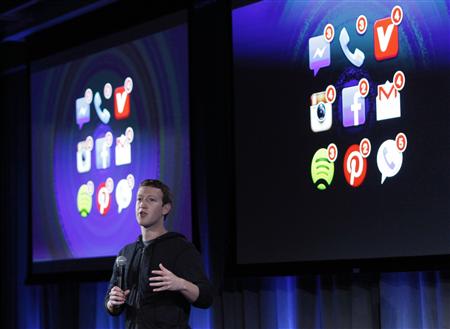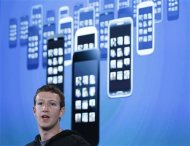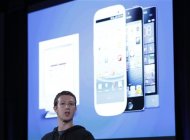Two bombs exploded in the packed streets near the finish line of the Boston Marathon today, killing three people and injuring more than 130 in a terrifying scene of shattered glass, bloodstained pavement and severed limbs, authorities said.
A senior U.S. intelligence official said two other bombs were found near the end of the 26.2-mile course.
President Barack Obama vowed that those responsible will “feel the full weight of justice.”
A White House official speaking on condition of anonymity because the investigation was still unfolding said the attack was being treated as an act of terrorism.
Authorities shed no light on a motive or who may have carried out the attack, and police said they had no suspects in custody. Authorities in Washington, D.C., said there was no immediate claim of responsibility.
“They just started bringing people in with no limbs,” said runner Tim Davey, of Richmond, Va. He said he and his wife, Lisa, tried to keep their children’s eyes shielded from the gruesome scene inside a medical tent that had been set up to care for fatigued runners, but “they saw a lot.”
“They just kept filling up with more and more casualties,” Lisa Davey said. “Most everybody was conscious. They were very dazed.”
The fiery twin blasts took place almost simultaneously and about 100 yards apart, knocking spectators and at least one runner off their feet, shattering windows and sending dense plumes of smoke rising over the street and through the fluttering national flags lining the course.
When the second bomb went off, the spectators’ cheers turned to screams. As sirens blared, emergency workers and National Guardsmen assigned to the race for crowd control began climbing over and tearing down temporary fences to get to the blast site.
A pool of blood formed, and huge shards were missing from window panes as high as three stories.
Boston police said two people were killed. Hospitals reported at least 105 injured, at least 15 of them critically.
Some 23,000 runners took part in the race, one of the world’s oldest and most prestigious marathons. One of Boston’s biggest annual events, the race winds up near Copley Square, not far from the landmark Prudential Center and the Boston Public Library. It is held on Patriots Day, which commemorates the first battles of the American Revolution, at Concord and Lexington in 1775.
Boston Police Commissioner Edward Davis asked people to stay indoors or go back to their hotel rooms and avoid crowds as bomb squads methodically checked parcels and bags left along the race route. He said investigators didn’t know precisely where the bombs were planted or whether they were hidden in mailboxes or trash cans.
He said authorities had received “no specific intelligence that anything was going to happen” at the race.
The Federal Aviation Administration barred low-flying aircraft from within 3.5 miles of the site.
Obama was briefed on the explosions by Homeland Security adviser Lisa Monaco. Obama also told Mayor Tom Menino and Gov. Deval Patrick that his administration would provide whatever support was needed, the White House said.
“We still don’t know who did this or why,” Obama said, adding, “Make no mistake: We will get to the bottom of this.”
A few miles away from the finish line and around the same time, a fire broke out at the John F. Kennedy Library. The police commissioner said it may have been caused by an incendiary device but didn’t appear to be related to the bombings.
The first loud explosion occurred on the north side of Boylston Street, just before the photo bridge that marks the finish line. The second explosion could be heard a few seconds later.
They occurred about four hours into the race and two hours after the men’s winner crossed the line. By that point, more than 17,000 of the runners had finished the race, but thousands of others were farther back along the course.
The four-hour mark is typically a highly crowded time near the finish line — both because of the slow-but-steady recreational runners likely to be completing the race and because of all the relatives and friends clustered around to cheer them on.
Runners in the medical tent for treatment of dehydration or other race-related ills were pushed out to make room for victims of the bombing.
A senior U.S. intelligence official said the two other explosive devices found nearby were being dismantled. The official spoke on condition of anonymity because he was not authorized to discuss the findings publicly.
A woman who was a few feet from the second bomb, Brighid Wall, 35, of Duxbury, said that when it exploded, runners and spectators froze, unsure of what to do. Her husband threw their children to the ground, lay on top of them and another man lay on top of them and said, “Don’t get up, don’t get up.”
After a minute or so without another explosion, Wall said, she and her family headed to a Starbucks and out the back door through an alley. Around them, the windows off the bars and restaurants were blown out.
She said she saw six to eight people bleeding profusely, including one man who was kneeling, dazed, with blood coming down his head. Another person was on the ground covered in blood and not moving.
“My ears are zinging. Their ears are zinging,” Wall said. “It was so forceful. It knocked us to the ground.”
Competitors and race volunteers were crying as they fled the chaos. Authorities went onto the course to carry away the injured while race stragglers were rerouted away from the smoking site.
Roupen Bastajian, a 35-year-old state trooper from Smithfield, R.I., had just finished the race when they put the heat blanket wrap on him and he heard the blasts.
“I started running toward the blast. And there were people all over the floor,” he said. “We started grabbing tourniquets and started tying legs. A lot of people amputated. ... At least 25 to 30 people have at least one leg missing, or an ankle missing, or two legs missing.”
At Massachusetts General Hospital, said Alisdair Conn, chief of emergency services, said: “This is something I’ve never seen in my 25 years here ... this amount of carnage in the civilian population. This is what we expect from war.”
The Boston Marathon honored the victims of the Newtown, Conn., shooting with a special mile marker in Monday’s race.
Boston Athletic Association president Joanne Flaminio previously said there was “special significance” to the fact that the race is 26.2 miles long and 26 people died at Sandy Hook Elementary school.




